Meet the jury for The European Pavilion 2024 call
18 Sep 2023
We are delighted to present the members and chair of the jury for the first Commissioning grant to host and curate the European Pavilion 2024.
The role of the jury is to select the recipient of the Commissioning grant from a shortlist of up to ten candidates drawn up by the European Cultural Foundation team.
The jury is made up of six members, each with voting rights, and a non-voting chair. They represent a wide range of cultural backgrounds, expertise and practices.
Jury chair
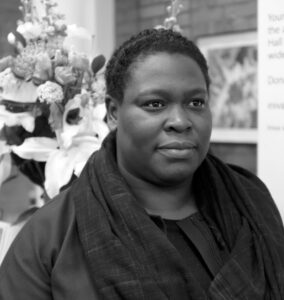
Sepake Angiama – UK
Sepake Angiama is the artistic director of the Institute for International Visual Art in London and a curator and educator whose praxis lies in the discursive and social framework, in order to collectively rewrite our understanding of the world. This has inspired her to work with artists who disrupt or provoke aspects of the social sphere through action, radical forms of pedagogy, and architecture. While in her position as Head of Education, Documenta 14 she initiated the project Under the Mango Tree – a self-organized gathering of unlearning practices. The second edition (Visva Bharati, Santineketan) brought together artist-led spaces, libraries, and schools interested in unfolding discourses around decolonizing education practices that destabilize the European canon, through examining alternative epistemologies, notions of unlearning, and indigenous knowledge. Sepake was the co-curator for the third edition of the Chicago Architecture Biennial where her research led her to engage with architects who are embedded in transforming the city through pedagogy, direct action, and community engagement.
Read an interview with Sepake Angiama here.
Jury members

Ferran Barenblit – SP
Ferran Barenblit (Buenos Aires, 1968) is a curator and museum director, who has led three museums in the last twenty years: Centre d’Art Santa Monica, Barcelona (2002-2008), CA2M Centro de Arte Dos de Mayo, Madrid (2008-2015) and MACBA Museu d’Art Contemporani de Barcelona (2015-2021). His most recent curatorial projects include “Action. A provisional history of the 90s” (Macba, 2021) and “Ben Vautier: Death does not exist” (MUAC, Mexico City, 2022). He is currently a visiting professor at the University of Michigan, Ann Arbor, and curator of “Maybe Tomorrow”, the upcoming 16th Cuenca Biennale in Ecuador. He is also a member of the L’Internationale association.

Máté Gáspár – HU
Máté Gáspár is a cultural manager, university lecturer and NGO expert. Between 1998-2010 along with Árpád Schilling, he was the co-founder and director of internationally acclaimed independent theatre company, Krétakör. For the past decade, he’s been equally involved in the art sector, education, and civic life. He served as the deputy of the Arts and Culture Program of the Open Society Foundations for four years. As the director of the Polgár Alapítvány foundation whose mission is to provide Roma people with equal chances, he’s been working for a more solid and inclusive society. Since 2014 he taught art mediation and management at the University of Theatre and Film Arts, Budapest where he also became Head of Art Theory and Mediation Department and member of the Senate. In reaction to the forced transformation of the University from public institution to a private foundation, he resigned from all his functions and left the faculty in fall 2020. Today he works as the artistic director of Budapest Brand, the Hungarian capital’s agency for culture and tourism.
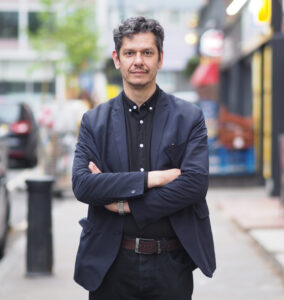
Hassan Mahamdallie – UK
Hassan Mahamdallie is an author, commentator, playwright and theatre director. He is Director of the progressive UK fellowship the Muslim Institute, and senior editor on its journal Critical Muslim. Hassan is the founder of the theatre company Dervish Productions. His latest play, Quiet Rebels, toured the UK in Autumn 2022. Hassan writes extensively on art, culture and democracy, British working class and Black history and politics, and issues of racism and Islamophobia.
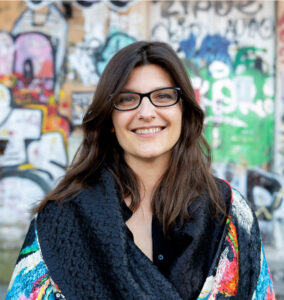
Teja Reba – LI
Teja Reba is a passionate advocate for arts, culture, gender equality and social justice. She co-devised many European cooperation projects and has helped in the preparation of documents, projects and policies in the area of Gender Equality and Diversity. For several years she was head of City of Women and the curator of its International Festival of Contemporary Arts. She also served as artistic director of Ljubljana’s Candidacy for the European Capital of Culture 2025. She was president of the Contemporary Dance Association of Slovenia, member of the Board of Directors of the Slovenian Fund for Highest Awards in the Arts and vice-chair of the Expert group on sustainability of the NGO sector at the Ministry of Culture of Slovenia. She is currently vice-president of the Expert Commission for Performing Arts at the Ministry of Culture and member of the Expert Group for the Strategic Development of Contemporary Dance in Slovenia. As devised theatre director and performance maker she has created a variety of pieces, for which she earned several awards.
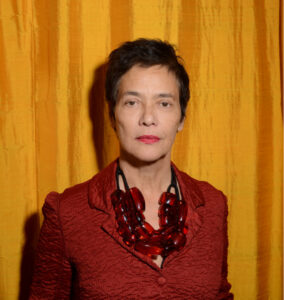
Françoise Vergès – FR
Françoise Vergès (1952, Réunion Island-France) is a writer, political theorist, antiracist feminist and independent curator. A cofounder of the collective “Decolonize the Arts” (2015-2020), she curates since 2014 the workshop/performance L’Atelier with artists and activists of color and is regularly collaborating with artists. She publishes articles on decolonizing the museum, the afterlives of slavery, colonialism and imperialism, decolonial feminism and racial Capitalocene. Recent books: Programme de désordre absolu. Décoloniser le musée (2023), A Feminist Theory of Violence (2022), A Decolonial Feminism (2021), De la violence coloniale dans l’espace public (2021, illustrated by Seumboy).
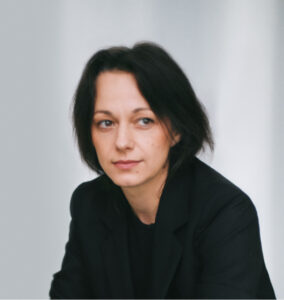
Olga Wysocka – PL
Olga Wysocka is a cultural manager and political scientist. Since September 2022, she has been the director of the Warsaw Observatory of Culture (WOK). Between 2018-2022, she served as the deputy director of Zachęta – National Gallery of Art. From 2010 to 2018, she worked at the Adam Mickiewicz Institute first as a manager and then, between 2014-2018, as Deputy Director. She led numerous international projects, including the cultural programme of the Polish Presidency of the Council of the EU in 2011 and the Poland-Turkey programme. Olga obtained her doctorate in Social and Political Sciences from the European University Institute in Florence and has been recognized with the Józef Tischner Fellowship at the Institute for Human Sciences in Vienna. She is a graduate of the Leadership Academy for Poland. She publishes on a range of topics including the promotion and management of culture, populism, and democracy, and teaches at the A. Zelwerowicz Theatre Academy in Warsaw.
